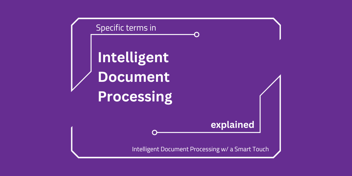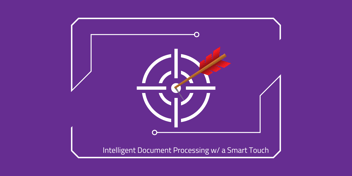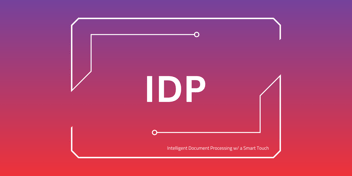Apollo is a SaaS platform we’ve developed to intelligently process multiple streams of different documents. Equipped with Artificial Intelligence and Machine Learning capabilities, the platform automates business processes & procedures involving any type of document (invoices, receipts, contracts, bill of lading, waybills, transportation orders, etc.), whether it's about issuance, processing, or reception.
Let's see how Apollo works when multiple document types are found in the same file.
1. You receive a .pdf file with multiple scanned documents.
2. You upload the file to Apollo or have it directly fetched by the platform. Apollo can automatically capture documents from various sources [API, email, SMART PORTAL, Google Drive, MS OneDrive, AWS, ICloud etc.] and accepts documents in a variety of formats [pdf, png, jpeg, docx etc.].
3. The documents are manually or automatically separated using Apollo’s SPLIT function.
4. With the help of Artificial Intelligence, Apollo:
- identifies and categorises all documents in the uploaded file (its CLASSIFIER feature).
- groups or regroups those documents that should be processed together according to beneficiary-set rules (its GROUPING feature).
For example, in today’s .pdf file with scanned documents, Apollo has identified:
- 1 timesheet,
- 1 ID card,
- 1 job offer,
- 5 invoices,
- 2 service contracts,
- 4 bills of lading.
- In the next step, intelligent processing begins by applying the rules you've established through SmartFlows.
A SmartFlow is a workflow that replicates a company's entire business process, internal flow, or internal procedure, from data extraction to their transfer to 3rd parties. A SmartFlow is created through simple drag-and-drop actions and is 100% customizable. You can build as many SmartFlows as you want or use predefined ones, depending on your company's unique needs.
In the example we're presenting today, the SmartFlow has clear instructions for each type of document, as follows:
- Timesheet, ID card, and job offer are sent to the HR department.
- Contracts are sent to the Legal department.
- Invoices are sent to the Finance department.
- Bills of Lading are sent to the Warehouse.
- In Apollo, each department has its own virtual workspace called… WORKSPACE 😊.
- All documents enter processing instantly & simultaneously. Apollo extracts the data you've set as relevant using its EXTRACTOR feature and processes them according to your established rules. For example:
- From the job offer and ID card, data of a new employee can be extracted. Using the DOCUMENT BUILDER function, an employment contract can be created, which Apollo automatically sends to the General Manager for signing, then to the future employee.
- From invoices, all necessary data and information are extracted, and the document can be sent first to the budget approval manager, then to the treasury for payment planning, and finally, it is entered into the ERP. Necessary data may vary according to department’s needs, type of invoice or other parameters.
- Any required data can be extracted from contracts. For example, the contract number, contract date, parties involved, contract subject, duration, and price. You can set a working rule for Apollo to check these data every time an invoice from that supplier appears. As a validation rule, you can set the condition that the invoice amount does not exceed the contract value during its validity period.
- Bills of Lading are processed according to the business rules you've established, matching the data from the order (item code, name, quantity etc.) with the data from the Bill of Lading.
- If desired, Apollo can group the invoice and its corresponding Bill of Lading.
- Additionally, Apollo can digitally archive all these documents, renaming the files with extracted data from the documents, such as "suppliername_invoicedate_totalamount.pdf".
All of the above actions are performed automatically, in just a few seconds, and with an up to 99% accuracy, that can be reached once Apollo’s Artificial Intelligence engines have learned what to do.
The document types, extracted data, or workflow examples we’ve mentioned here are just a glimpse of what Apollo can do.
With Apollo, it's very easy to work with both general rules and exceptions because its Intelligent Document Processing starts with the general rule and moves toward perfection with the help of validation, interpretation, and mapping blocks of the data extracted from documents. Specifically, with SmartFlows, which can contain as many validation blocks as needed to make the informational and computational flow work simultaneously.
Schedule a DEMO and we'll show you how Apollo, the Intelligent Document Processing platform that serves all departments, works.


